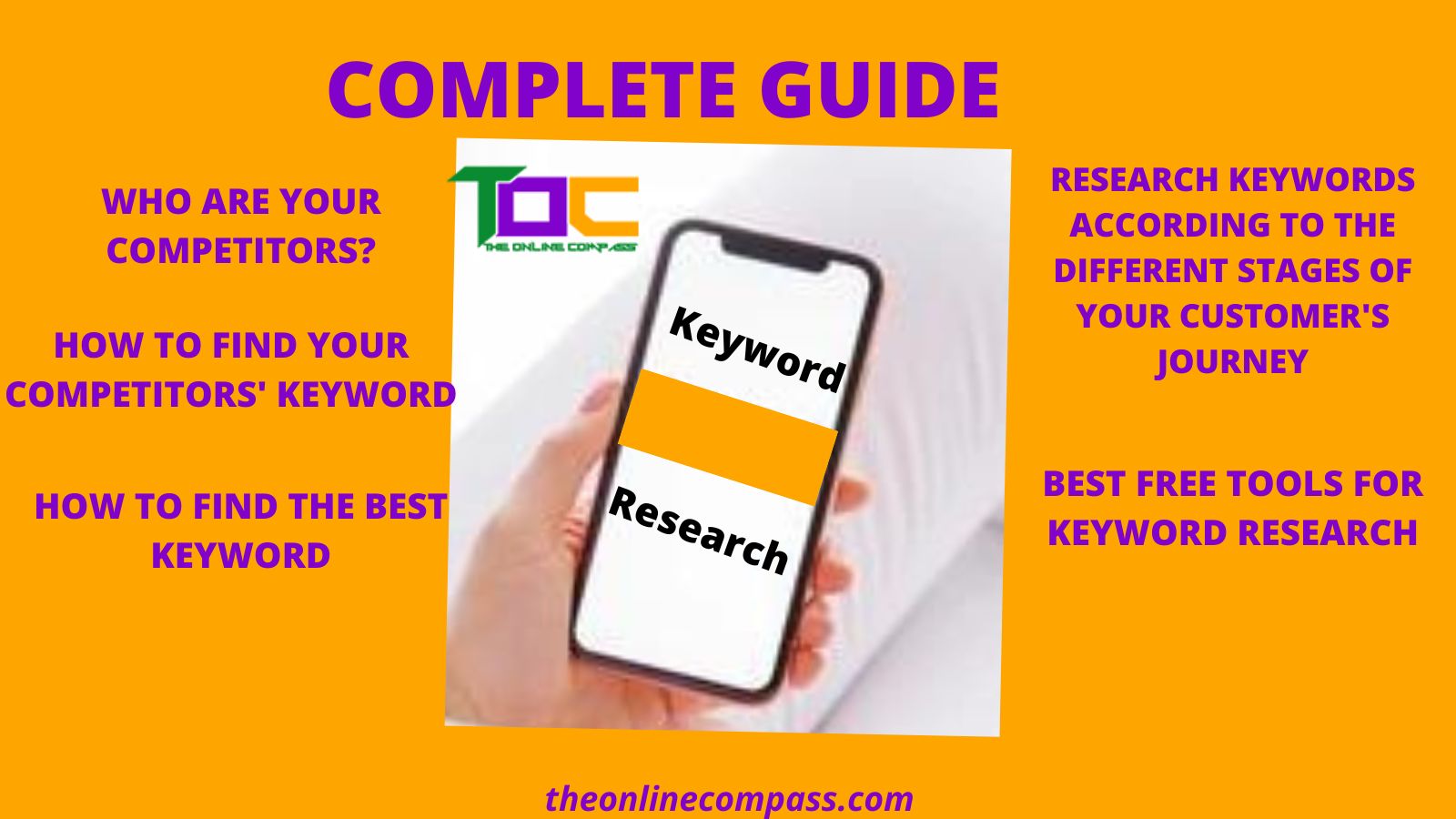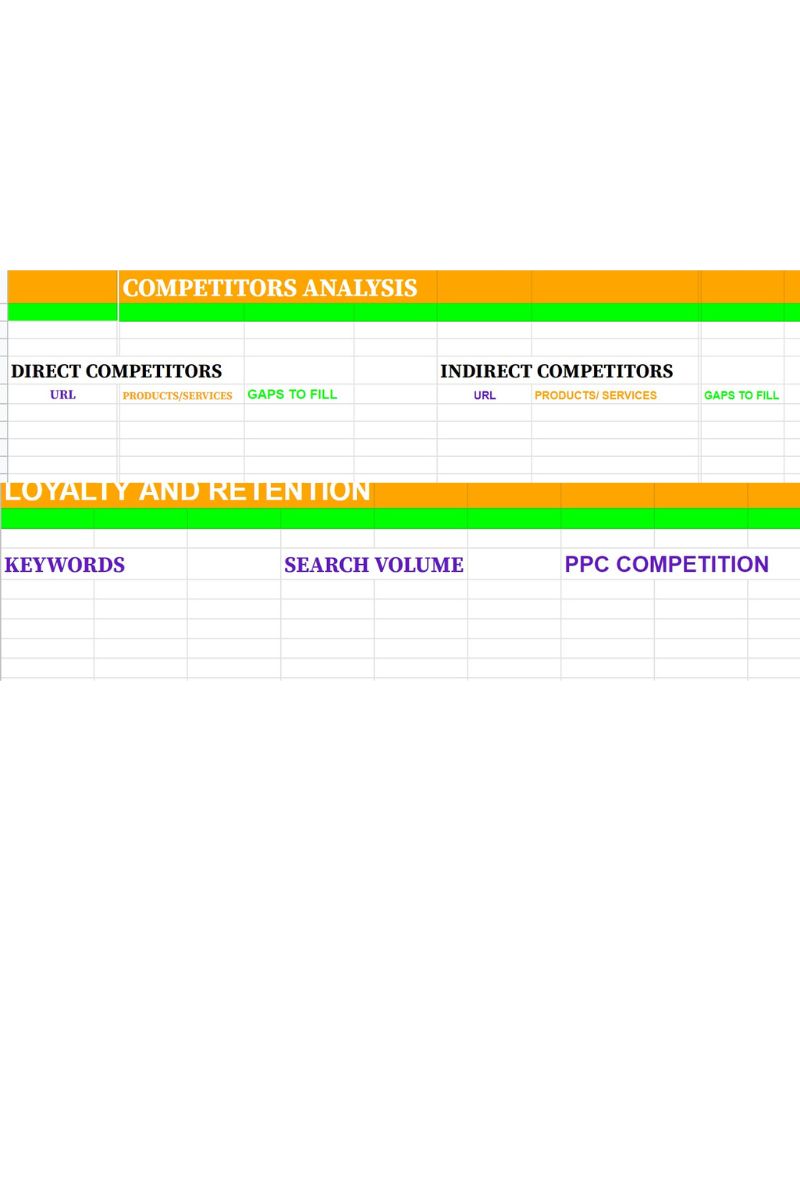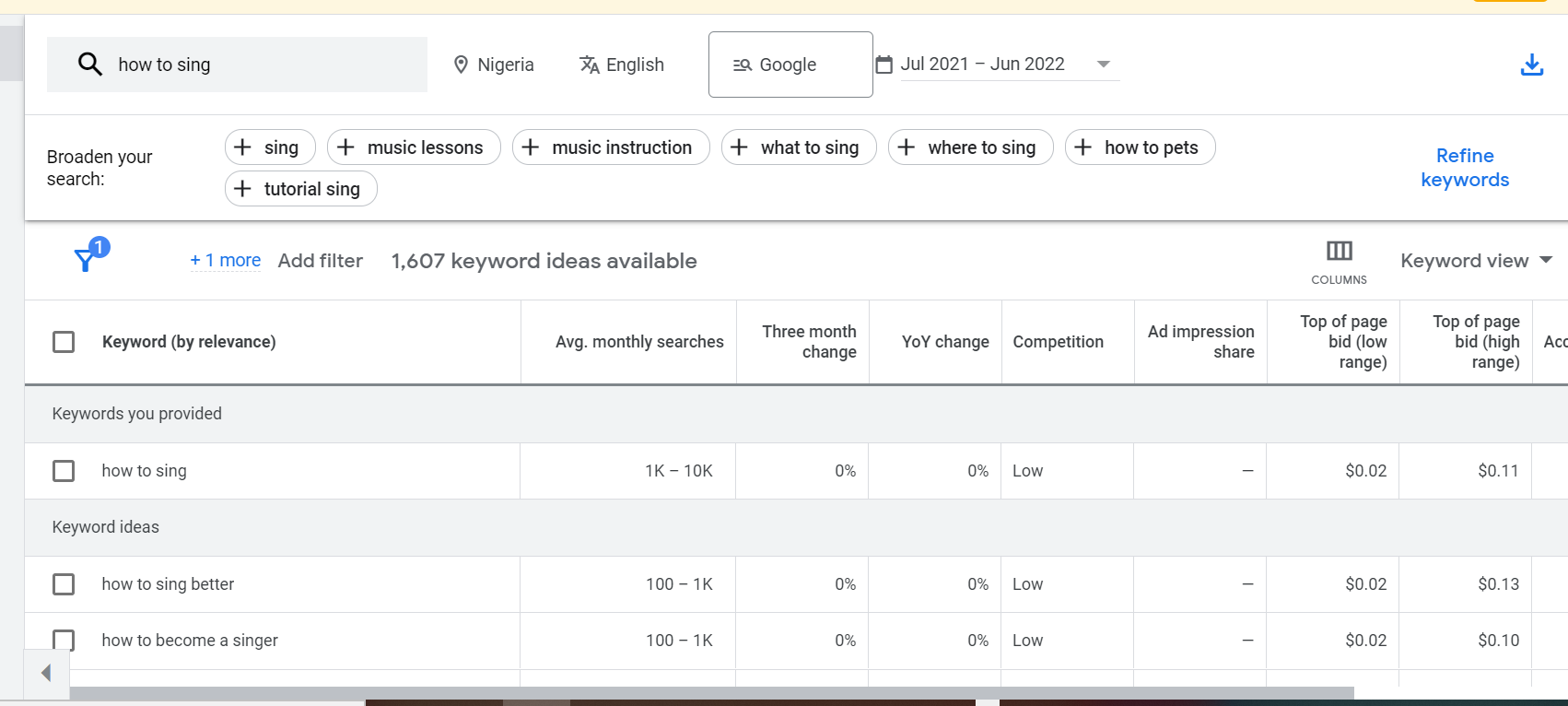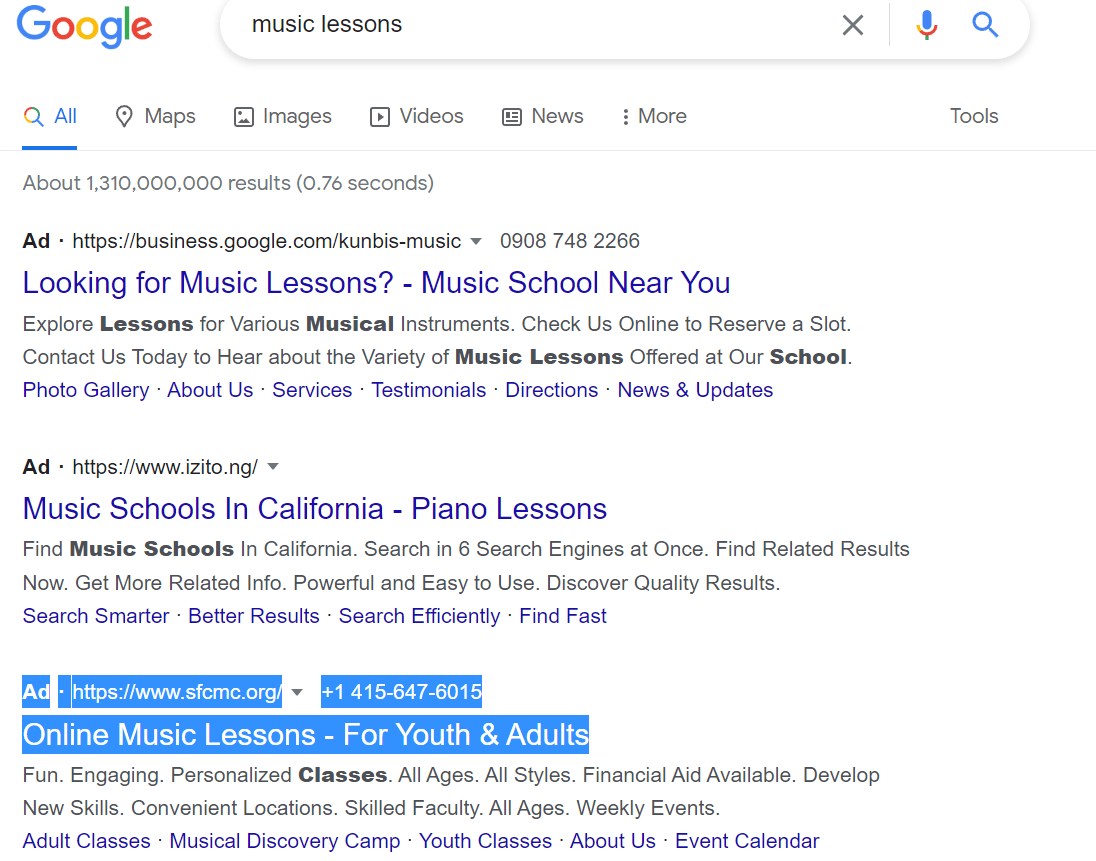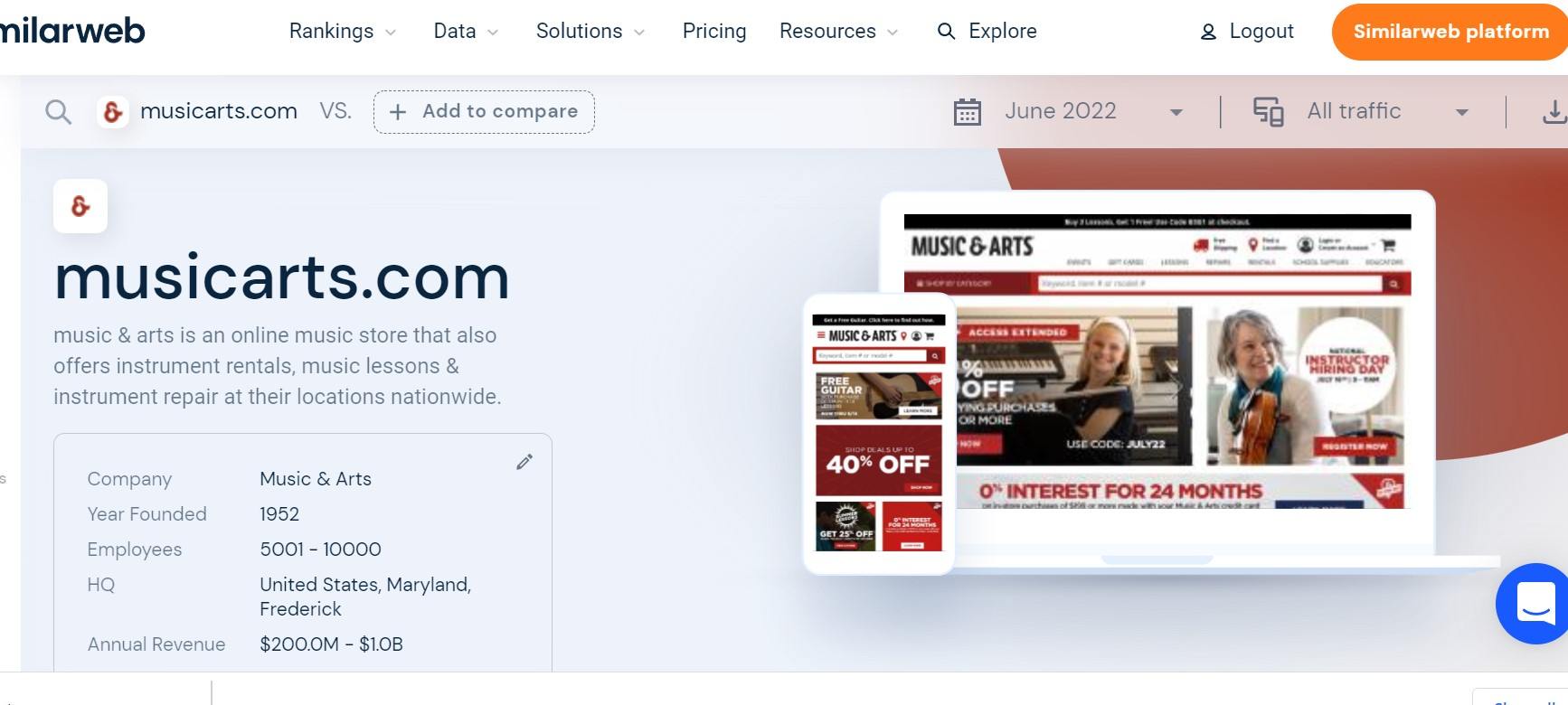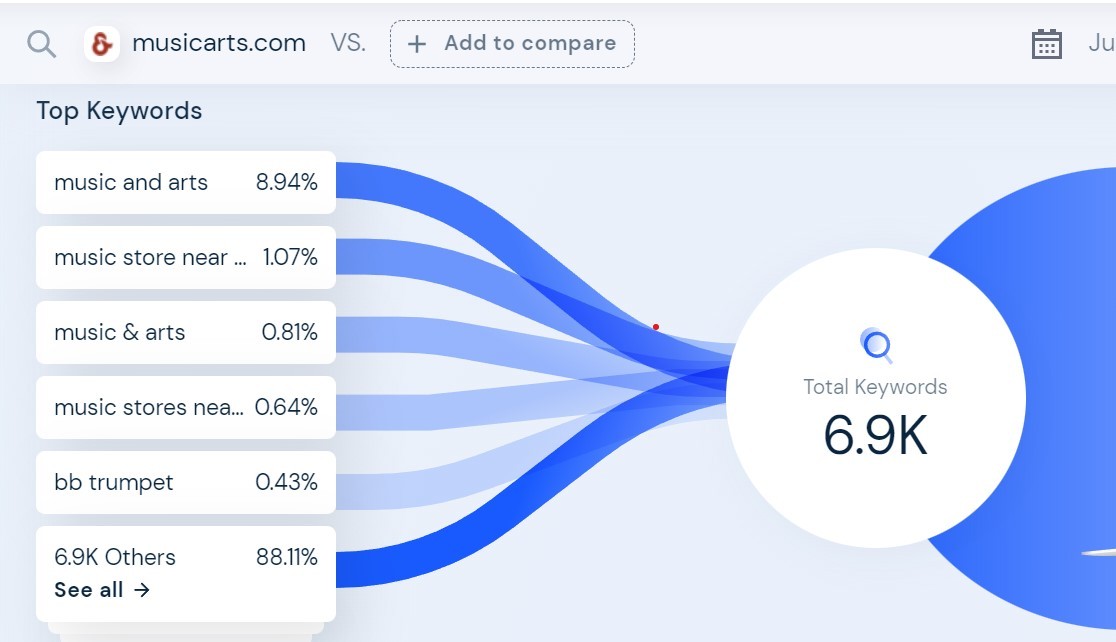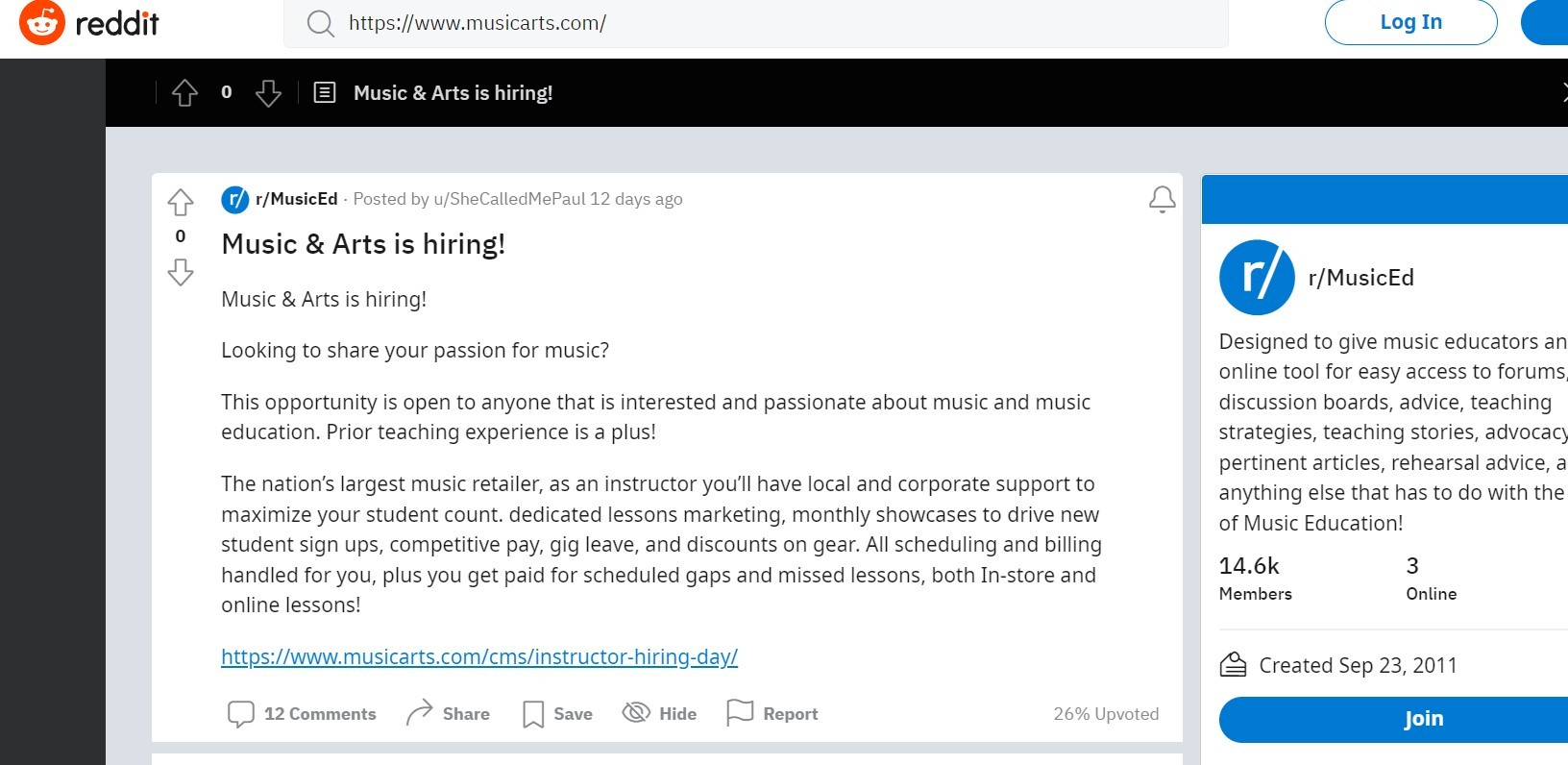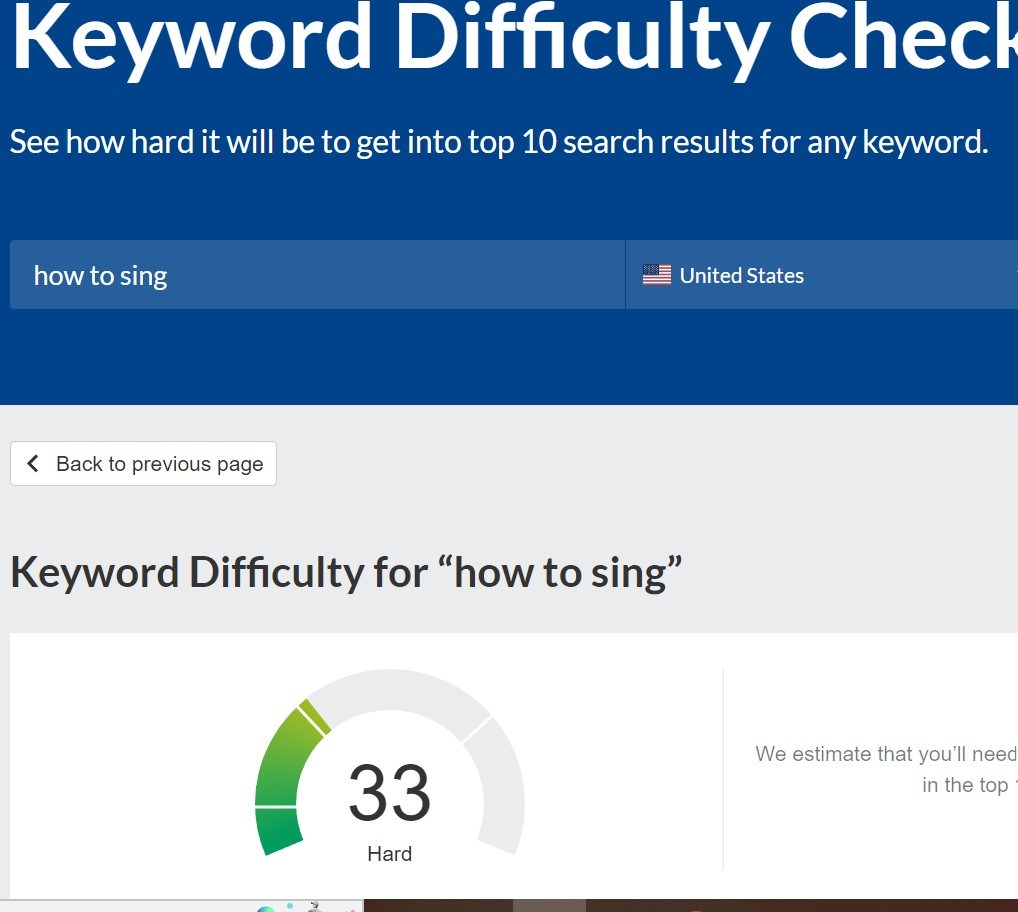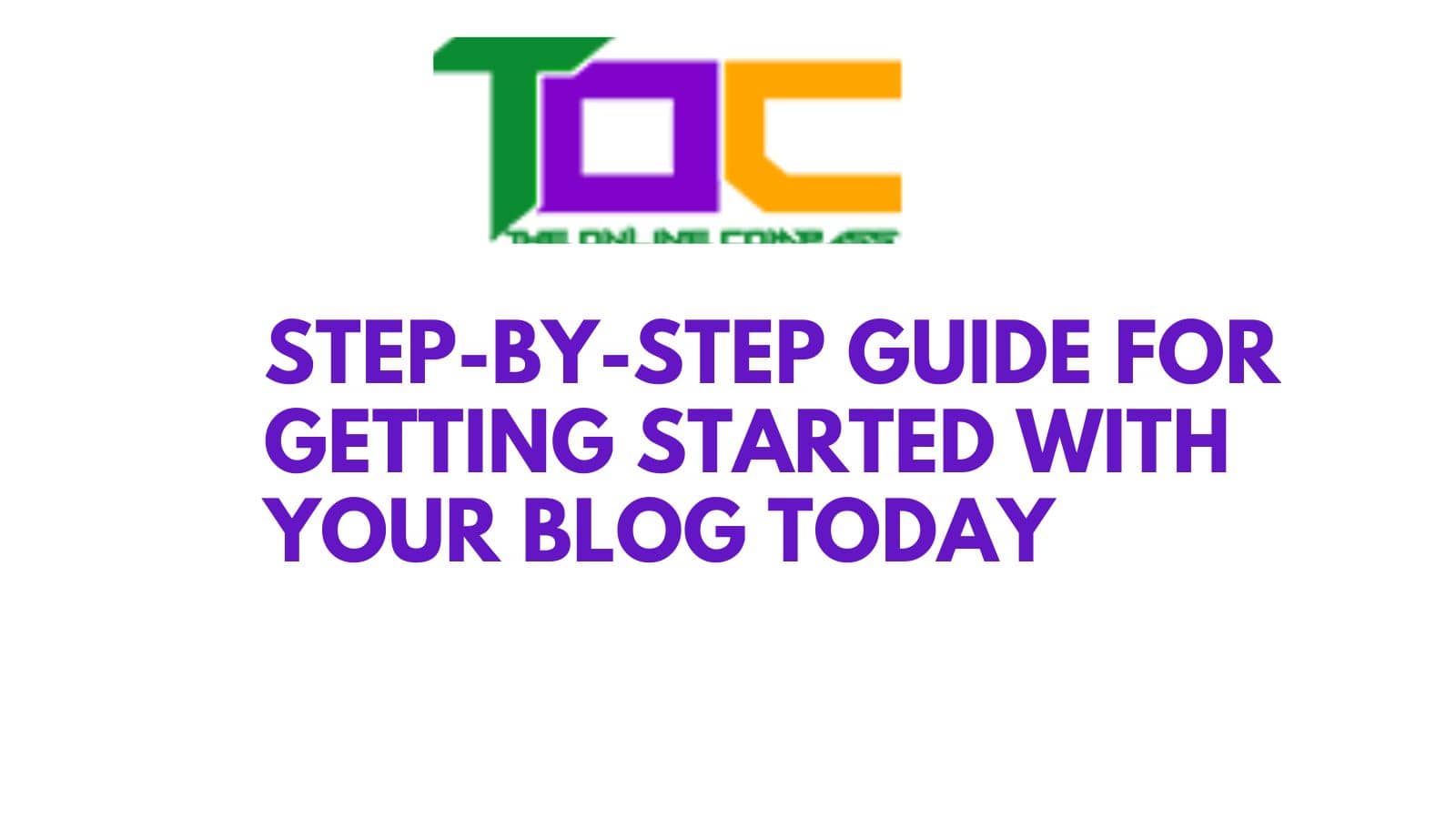How to find competitors keywords: Unravel secret and power keywords
This post is about how to find your competitors’ keywords, the meaning of keyword competition, know who your competitors are, and how to research your business keywords according to your prospect intent at different stages of the customers’ journey. You’ll also learn the best tools available for your competitor analysis.
What is keyword competition?
“Keyword competition” simply means how difficult it is for you to rank for a keyword compared to your competitors.
This is determined principally by two factors:
- How popular the keyword is.
- Competitiveness of the advertisers bidding for the keyword within the industry.
What this means is that keyword research should go beyond just knowing what people are searching for in a search engine. It should include finding out how competitive it is to rank for the keywords.
This is why it’s important to know how to find your competitors’ keywords to identify gaps to fill and stay ahead of the competition.
Keyword research is at the core of SEO.
As a matter of fact, it is fundamental to the success of your digital marketing.
Every online entrepreneur that understands SEO knows that keywords are the foundation of creating content that sells online.
Failure to recognize this spells absolute doom from the beginning of your digital marketing journey.
The online market is becoming more and more competitive on a daily basis as more people use online platforms to market their goods and services and connect with friends.
The competition is further increased by the major players in your sector who have the financial means to contend for both organic and paid keywords on search engines.
Should this scare you?
No!
Even if you are a new player in this industry with limited resources, there are ways to succeed. And one of them is to carry out an effective competitor analysis.
Let’s begin by examining why it’s wise to learn how to find your competitors’ keywords.
Why do you need to know How to find your competitor’s keywords?
Your competitor keywords analysis is important for the success of your digital marketing strategy.
Sound knowledge of how to find competitors’ keywords will enable you to discover their strengths and uncover their weaknesses.
Benefits of knowing the strengths and weaknesses of your competitor.
- Knowing the strength of your competitor enables you to know what to enforce in your digital marketing strategy to stay ahead of them.
- You also get to know the key factors that lead to their pages performing better than yours in search results.
Furthermore, by identifying your competitor’s weaknesses,
- You’ll identify any gaps which need filling or problems that need fixing.
- Finding their weaknesses will help you identify keywords in your niche for which you can compete.
knowing how to find your competitors’ keywords is a must for a successful digital marketing strategy!
And at the heart of your competitors’ analysis is keyword research.
Interestingly enough, most marketers don’t know how to carry out effective keyword analysis.
For example, they don’t
- Take into account the competitiveness of their target keywords.
- Or consider the intent of the keywords they are targeting.
- Also, they fail to consider the resources required to compete for the keywords.
Effective keyword analysis should take all the above into consideration.
When this is done, you will be able to get a good view of what your chances are against the competition in search results.
Two categories of keywords to effectively research your competitors
#1. High-impact keywords. These are commercial keywords that have low search volume and low competition, but they have a significant impact on your business goals both now and in the future.
By focusing on these keywords, you can outrank your competitors. Although high-impact keyword opportunities are scarce, they yield a good return on investment because they have the ability to rank on page one of google search results.
#2. Low impact keep words: These are informational intent keywords with high search volume and high competition but have little or no revenue impact on your business for now because they are highly competitive keywords.
You might be able to rise and benefit from being on the first page of search results in the future when your site’s domain authority is stronger to compete with other sites for the top position.
However, if you have the resources to bid for these keywords on search engines, then you should definitely go for them.
Knowledge of these two categories of keywords will help you set your keyword goals and objectives.
How to research your keywords according to your prospects’ intent on their buyer journey
What is a buyer’s journey?
In simple terms, it’s the decision process a buyer goes through to make a purchase.
Buyers don’t wake up and buy things on a whim; they go through a process called the buyer’s journey to become your customer.
If you needed to buy a dress, your buyer journey would probably look like this: you know you need a dress, and you begin to research dresses. Then you find different types of dresses. Next, you decide to go for a short dress.
Now that you know your preference is a short dress, you will want to know the best price and best shop to make your purchase. Finally, you make the purchase. This process is called the customer or buyer journey.
Now how does this play out in terms of keyword research?
Understanding the buyer’s journey will enable you to choose the best keywords that will suitably satisfy the needs of the customer.
There are 3 stages in the buyer’s journey. The stage of awareness, consideration, and decision.
Stage of awareness
At the stage of awareness, your prospect may be using informational intent keywords that have no immediate revenue benefits to search for what they want in search engines.
For example, if they are looking for diabetic shoes because they want to protect their feet from injury, they may use keywords such as: How to prevent diabetic foot injury. Fast way to ( to prevent diabetics foot injury or cure diabetes foot injury)
- Here to
- Fastest way
- Quick way to
- What is
- Why is
- Easiest way to
- Guide on
- Cause of
- The reason
- Where
- Improve
- Troubleshoot
- Resolve
Because they are only seeking the information at this stage they will be focusing on the keywords above.
Download the FREE worksheet below for your analysis.
Consideration stage
At the consideration stage, your prospects will be looking for solutions to their problems. So, he may be doing one of two things, considering using your products and services, or comparing other products and services.
The suitable keywords are:
- Specific product for
- Product name features
- Products name benefits
- Product testimonial
- Best
- Types
- Review
- Which
- Service
- Solution
Decision stage
At the decision stage, your prospects have identified their problems and solutions, the next thing is that they will be looking for the right information to help them make their decision. So at this point, they will be using buyer intent keywords such as:
- How much
- Where can I buy
- How like long
- Promotion
- Offers
- Discount
- Packages
- Brand
- Buy
- Appointment
- Free Consultatiion
- Hire
- Book
- Free trial
- Free
With the competition rising, it’s becoming increasingly crucial to focus your marketing efforts on consumers who are at the awareness and consideration stages which have high search volume informative keywords to build your authority. Doing this will put you in your prospect’s mind when they want to buy a product or service.
A crucial part of your buyer’s journey is loyalty and retention. It’s where you get prospects to buy your products and services or make a commitment to your brand. This is where you can close a deal on a free trial, low ticket product or service.
Ensure you get a commitment from your prospects, either in the form of a generated leads or low ticket sales.
Why?
You get the opportunity to nurture them into loyal clients and upsell them in the future. You also get to know your customers better and minimise product return rates.
If you have come this far with me, I congratulate you because you have gone halfway to knowing how to find your competitors’ keywords.
Next, let’s expand your search to include more keywords.
The next step in knowing how to find competitors’ keywords is to research who your competitors are.
Who are your competitors?
The questions that I haven’t answered so far are “who is your competitor” and “what qualifies them to be my competitor.”
There are 3 types of competitors.
1. Direct competitors:
Your direct competitor is in the same niche or industry as you. They offer the same goods and services as you do, as well as the same solutions to problems.
2. Indirect competitors:
Businesses that operate in the same industry, provide the same service, but sell different goods are considered your indirect competitors.
3. Substitute competitors:
Substitute competitors are in a completely different niche, have different products and services, but they solve the same problem as you.
- Consider the resources available to you; Are you able to compete with the big players in your niche or the smaller ones
- Are you going to target your direct competitor, indirect competitor or your substitute competitor?
We shall be using the seed keyword for the different stages of your buyer’s journey above.
Using music school as a hypothetical example, let’s begin with the awareness stage using the keyword “how to.”
The awareness keyword may be: How to sing.
Adapt this to suit your niche.
Step 1: We shall be using google key word planner a free tool to expand your seed keywords to show more search terms.
The metric we shall be analyzing are:
- The average monthly search volume
- Average CPC
- Level of the competition: This shows the level of competition an ad placement would have for the keyword. The levels are usually low, medium, or high. These levels show the number of competitors bidding for a keyword in the ad space.
The monthly search volume is between 1k-10k. This means there is a good search for it. (At the moment I’m not running ads so I don’t have access to the accurate figure, but you can get the actual monthly searches if you are bidding for ads).
The competition is low which means few advertisers are buying ads for this keyword.
Top of page bid is $0.1. This is reasonably so because the competition is low. A music school that wants to create brand awareness can bid for this keyword to pull in traffic to its website.
Write down all the search keywords.
Step 2: Find your competitors in Google search engine
With your key words from Google keyword search tool, it’s time to head over to Google search engine to find your competitors.
Take each of the keywords you have written down and just pop your target keywords into the search engine. The pages that show up on the first page are your competitors. Grab the organic and the paid competitors’ URL and enter them into your worksheet.
The sites on the first page of the search are all the big players in your industry. Write down the names of these sites.
Step 3: Use free competitors tools to further expand your competitors
let’s search for similar sites that are your competitors but may not be on Google page one. We shall be using a free tool called similar web to discover the websites that are targeting the same audience as you.
However, these are different from the big players that appear on page one of the Google search results.
For this search, we shall be using the music giant musicarts
– Similar ranked sites
– Top countries
– Audience demography: Age distribution, the device used, sex, and audience interest.
– Competitors and similar sites
Marketing channels: This will show you how they get traffic to their sites.
– Musicarts gets most of its traffic from organic search. Followed by direct (this means the brand is well known).
– Keyword search traffic: Its top keywords are music and arts, music store near, music & arts, music stores near, bb trumpet, and others.
We can also see that 81.40% of their keyword is organic while 18.60% is paid.
– Social media traffic: The top social media network directing traffic to musicarts are youtube, Facebook messager, and Reddit.
– Your competitor’s keyword
To see more analysis, you will have to upgrade your free plan to premium.
However, from the information you have gathered so far, you should be able to know your audience demography, traffic source, keywords, social media platform to target, and much more.
Dig into as many of your target audience as possible and get more information to pump up your site.
This website musicarts is ranking for 6900 keywords.
This is a huge reservoir of keywords for anyone in the music niche.
staBear in mind that you have only used “awareness keywords” to search your competitors.
So, find more competitors with your “consideration keywords”, and “decision keywords.”
To do this follow steps 1-3 above for each stage of your customer’s journey. Rinse and repeat until you have gotten enough keywords that reflect your buyer’s intent at each stage of his journey.
Additionally, it’s crucial to look for their product reviews on independent websites like social media and discussion forums.
Also check popular discussion boards like Reddit and Quora are good places to look up popular brands in particular.
This is how to search on Reddit and Quora. Enter the URL of your competitor in the search box.
You will be a ton of questions and answers about the goods and services of your competitor.
Bear in mind that you are searching to uncover gaps you can fill. Therefore, make a list of topics you can write about and any issue you can solve. You may also discover services you can offer.
We want to see how your competitors are making sales. What strategy do they employ? Are they running ads or not? If they are running ads, what is their monthly budget? How many clicks are they getting?
You need all this to ascertain not only how they convert customers but also to find out if there is profit in your keywords.
You can bet they are making money if they are running ads.
A great tool to use for this research is SpyFu.
You can download your competitors’ most profitable organic keywords, paid keywords, landing pages from history, and even their most profitable ad copy by entering their URL into Spyfu.
Now it’s time to filter the keywords.
If you have the resources, you can also check their paid keywords. You may also want to check the keywords generating leads for them.
All your researched keywords are good for your business. Keep safely, the ones that are highly competitive. You will need them when the authority of your website increases.
You would also want to check how difficult it is to rank for your keywords.
This is a tool for that. Use ahref keyword difficulty tools. This will reveal how easy it is to rank for your keywords on a score of 0-100.
The higher the number, the more competitive. Stick with keywords below 30 difficulties with good search volume if your site is new and you don’t have the backlinks to compete favorably in search engines.
But because website management and traffic generation are not limited to SEO, you may also use keywords with a high degree of difficulty to rank if you have a large social media following or you are have the resources to buy ads.
CONCLUSION
It is important to keep in mind that your keyword will become more competitive as you move from the stage of awareness to consideration, and finally to the decision.
But knowing how to find your competitor’s keywords will enable you to find keywords that have low competition for your business.
What do you think about this post? Share your thoughts in the comment box below!
Download the FREE worksheet below for your analysis.
Disclosure: I may receive affiliate compensation for some of the links below at no cost to you if you decide to purchase a paid plan. You can read our affiliate disclosure and privacy policy.
I hope the post was helpful? Share to your favorite social media platform.
Do you have any questions, suggestions, or comments? Feel free to use the comment box below.

